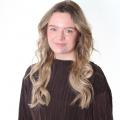Bolton GP Dr Helen Wall urged people to 'get winter strong' by protecting themselves from potentially life-changing illnesses.
The doctor who is also the who is the clinical director for population health at NHS Greater Manchester helped launch this year's campaign to prevent a potential 'tripledemic' of viruses.
And she urged people to take a minute and research the facts for themselves - rather than turning to social media.
Buses are helping to drive home the importance of being vaccinated this winter with special messages reminding those eligible to protect themselves against viruses including flu, Covid but particularly Respiratory syncytial virus (RSV).
Health officials say that RSV vaccination programme could prevent thousands of hospital admissions for babies and elderly people which would also help to ease pressure on the NHS in the run-up to the winter months.
Across the Northwest, more than 2.8 million people are eligible to receive the Covid-19 vaccine, and 4.2 million can get the flu vaccination.
Last Autumn, a total of 102,759 eligible people in Bolton received their booster jab, resulting in a 45.6% uptake.
A total of 9,222 people who were deemed as "at risk" received their vaccination last year, resulting in an uptake of 23.1%.
Although these numbers are down from the previous year, in which a total of 13,885 received their booster with an uptake of 34.8%.
A grand total of 46,884 people received their vaccination this autumn, including care home residents (1,048), social care workers (602) and healthcare workers (2,278).
However, these figures are slightly less than autumn 2022 where a total of 59,202 eligible people received their vaccine.
The free vaccines are said to provide crucial protection against serious illnesses and hospitalisation during the busy winter months.
The RSV vaccine will be available from Wednesday (October 23) in Bolton. The jab will be available to those aged 75 to 79 and will be offered to pregnant women from 28 weeks to protect their children.

According to the NHS, an average of 146 young children were in hospital with RSV each day at the peak of winter last year, up 11 per cent on the previous year.
Dr Wall said: “The increase in uptake of COVID-19 vaccines has very unfortunately been at the detriment of other vaccines, such as RSV and the flu.
“Whilst it is important to keep vaccinating for all diseases, we have seen a seven per cent drop in people who are clinically at risk of the flu getting vaccinated.
“It’s quite worrying, especially as people can be reluctant to get a new vaccine. We see cases usually peak in winter, so it’s important that those eligible take up the offer.
“In the case of the RSV jab, pregnant women are a large part of the demographic as it can affect new born babies, sometimes more so than mothers.
The RSV jab will be available to those aged 75 to 79 who are most vulnerable to the condition.
Dr Wall added that “there’s so much work” that goes into determining who will benefit from the vaccine and those with “an increased risk of pneumonia” and “brain inflammation” fall into the targeted demographic.
One of the barriers to the vaccine is misinformation which can cause some people to be reluctant: “It’s hard because there’s so much on social media and I know even from being here today that I’ll get trolled.
“People can be really engaged in their own ways, but I would advise people to drill it down to themselves and their own health.
“How would you feel if you got really sick? We’re so lucky in this country to have widely available healthcare and vaccines are a huge part, we can’t lose sight of that.
“I would advise anyone to seek advice from reputable sources, people with medical degrees who have expertise in the field.”






Comments: Our rules
We want our comments to be a lively and valuable part of our community - a place where readers can debate and engage with the most important local issues. The ability to comment on our stories is a privilege, not a right, however, and that privilege may be withdrawn if it is abused or misused.
Please report any comments that break our rules.
Read the rules hereComments are closed on this article